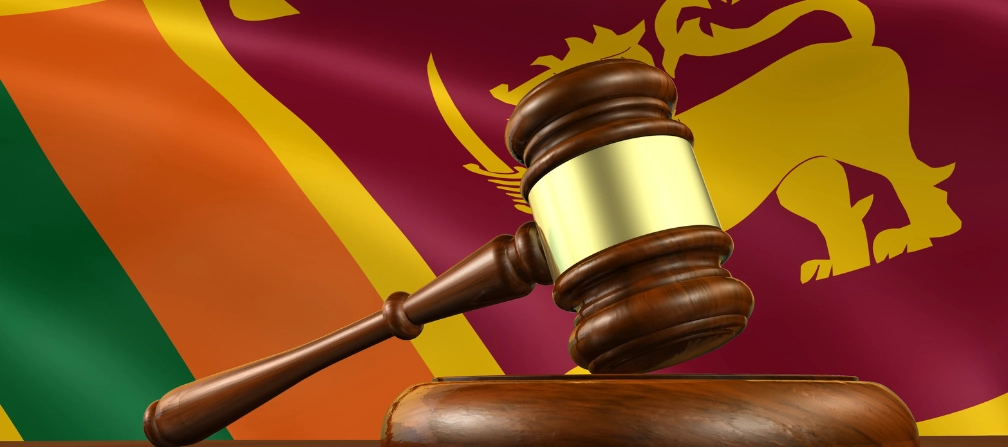Employee monitoring laws in Sri Lanka - 12 frequently asked questions:
Is employee monitoring legal in Sri Lanka? Is it legal to monitor company’s computers? Is it legal to monitor employee internet and social media activities? Is it legal to monitor screen contents and keystrokes? Is it legal to monitor email content? Is it legal to monitor or record phone conversations? Is it legal to use video monitoring systems in the workplace? Is it legal to monitor private messages and email content? Is it legal to monitor employees' personal devices? Is it legal to monitor employees' personal computers? Is it required to inform employees of the monitoring? Employee monitoring policy - mandatory or not? And some bonus info!1. Is employee monitoring legal in Sri Lanka?
Regulations on monitoring employees are currently not covered by the Sri Lankan legal system. There are no permissive or prohibitive rules on their use, and their application is subject only to ethics and general legislation. However, employers can adopt measures or means to keep tabs on employees' activities on work-provided equipment. In the absence of any specific legislation, Sri Lankan companies wishing to implement employee monitoring software must always comply with the limits laid down in the Constitution. Respect the privacy, honor, and image of individuals.2. Is it legal to monitor the company's computers?
Yes. This is backed by the Computer Crime Act No. 24 of 2007 ('the Computer Crime Act') that provides for the identification of computer crimes. Employees should understand that their employers can monitor activities carried out on a company-issued computer or via the internal company network. There should generally be little or no expectation of privacy. It is also good practice for the employer to inform employees that there will be control over the company equipment.3. Is it legal to monitor employee internet and social media activities?
Yes. The answer to this question is similar to the previous one. Generally, the company has the right to ensure that all employees are using the Internet for work-related purposes during paid hours. Employers can monitor internet activities such as visited websites, time spent online during working hours, and even restrict visits to particular websites. Employers can monitor and regulate employees' social media use at work, particularly on company devices. The rules on the Internet and social media use during working hours should be indicated in company policies.4. Is it legal to monitor screen contents and keystrokes?
Yes. In Sri Lanka, employers can monitor screen content and every keystroke on a company-issued device. A useful tip is to recognize that everything an employee does on their work computer can be accessed by their employer, especially if there is a well-documented workplace policy.5. Is it legal to monitor email content?
Yes, if this is a company corporate email account, they are obligated to prohibit the use of corporate emails for personal use. Before doing so, the company must clearly inform its employees about the monitoring of the email. In other words, clear policies that indicate that corporate emails are solely for professional use should be provided. This will enable the employer to take appropriate actions against its employees if corporate emails are used for purposes other than corporate use.6. Is it legal to monitor or record phone conversations?
Yes. Recording telephone conversations in some sectors that deal with telecommunication cannot be considered illegal in Sri Lanka. However, this type of monitoring is one of the most controversial and considered rather invasive. According to the Sri Lanka Telecommunications Act (No. 25 of 1991) - Sect 17, Companies wishing to implement this form of monitoring in Sri Lanka must do so under the authority of a license granted by the Minister. Also, employers should ensure that employees are notified of the monitoring and invade employees' privacy. Also, well-defined policies should be created and communicated to the employees. The policies may include:- The purpose of the call recordings.
- What information will be recorded?
- How the recorded data will be stored or retained.
- Data security.
- Who will have access to the recorded data?
7. Is it legal to use video monitoring systems in the workplace?
Yes. The truth is that this type of monitoring is widespread in Sri Lankan workplaces. Several offices install video monitoring systems in common areas to deter criminal activities or to protect their assets. However, it is also important to use common sense and evaluate the necessity for such tools to monitor your workers. Employee confidentiality and dignity must be respected at all times. It is always good practice to notify all parties before the monitoring. Before monitoring is carried out, the following criteria must be met:- The monitoring of employees must be reasonable and balanced.
- The cameras or any other forms of control must be visible.
- Cameras must only be placed in work areas (excluding recreational places, restrooms, or other private places).
8. Is it legal to monitor private messages and email content?
Yes. As long as the company has clear policies prohibiting the sending and receiving of private messages and emails on company devices during and after business hours. In such a scenario, it is justified to monitor these on a company device. Again, the keyword here is well-defined policies. Monitoring without ensuring that the employee has been adequately notified may result in significant monetary damages being paid to the employee.9. Is it legal to monitor employees' personal devices?
Yes. It is important to note the employee must answer to the employer during working hours even if work is done on a personal device. Employers may regulate use this period if they so choose. That said, it is crucial to maintain transparency when this type of monitoring is implemented. All measures should be taken to guarantee that employee privacy is not violated.10. Is it legal to monitor employees' personal computers?
Yes, the answer is similar to the answer given above. If employees work on a personal computer, their employers can monitor such devices to protect business information. However, the monitoring should not capture data on the employee's private life. Adequate measures should be taken to distinguish between personal and business use of the device, and policies should be developed and communicated to employees.11. Is it required to inform employees of the monitoring?
Yes. As mentioned earlier, no specific laws cover the monitoring of Sri Lanka employees. However, prior notification of the monitoring is always a perfect way to encourage employees to be at ease concerning their privacy. When employees are familiar with the monitoring process and which personal data are collected, and any other information necessary for them to understand the process, it will be easier to adapt to the process without feeling that their privacy is being violated.12. Employee monitoring policy - mandatory or not?
Yes. Just as companies have workplace policies, codes of conduct, etc., monitoring policies or handbooks that explain the monitoring process can be included. It should be easy to access and understand, and employees should be informed of the monitoring process.Our monitoring experts have developed ready-to-use policies, announcement samples, and employee monitoring handbooks for direct use or a sample to create future employee monitoring policies. Request a copy now. It's free!
Are there Sri Lankan laws that protect employee workplace privacy?
According to Data Guidance, the Constitution of the Democratic Socialist Republic of Sri Lanka 1978 does not guarantee privacy as a fundamental right. The Ministry of Digital Infrastructure and Information Technology (MDIIT) did, however, draft a proposal for an Act to govern the processing of personal data in 2019. Other relevant legislation include:- Right to Information Act No. 12 of 2016.
- The Computer Crime Act No. 24 of 2007.
- Telecommunications Act No. 25 of 1991.
- Intellectual Property Act No. 36 of 2003.
Is there professional lawyers’ advice on monitoring?
Professional lawyers frequently advocate for transparent and open monitoring. Employees should be made aware of the following:- The knowledge that they are being monitored.
- The purpose of the monitoring process.
- Noteworthy legitimate reason for monitoring.
- How long the collected data will be retained.
- Monitoring rights of employees.
- The right for employees to speak out where there are concerns about monitoring.









